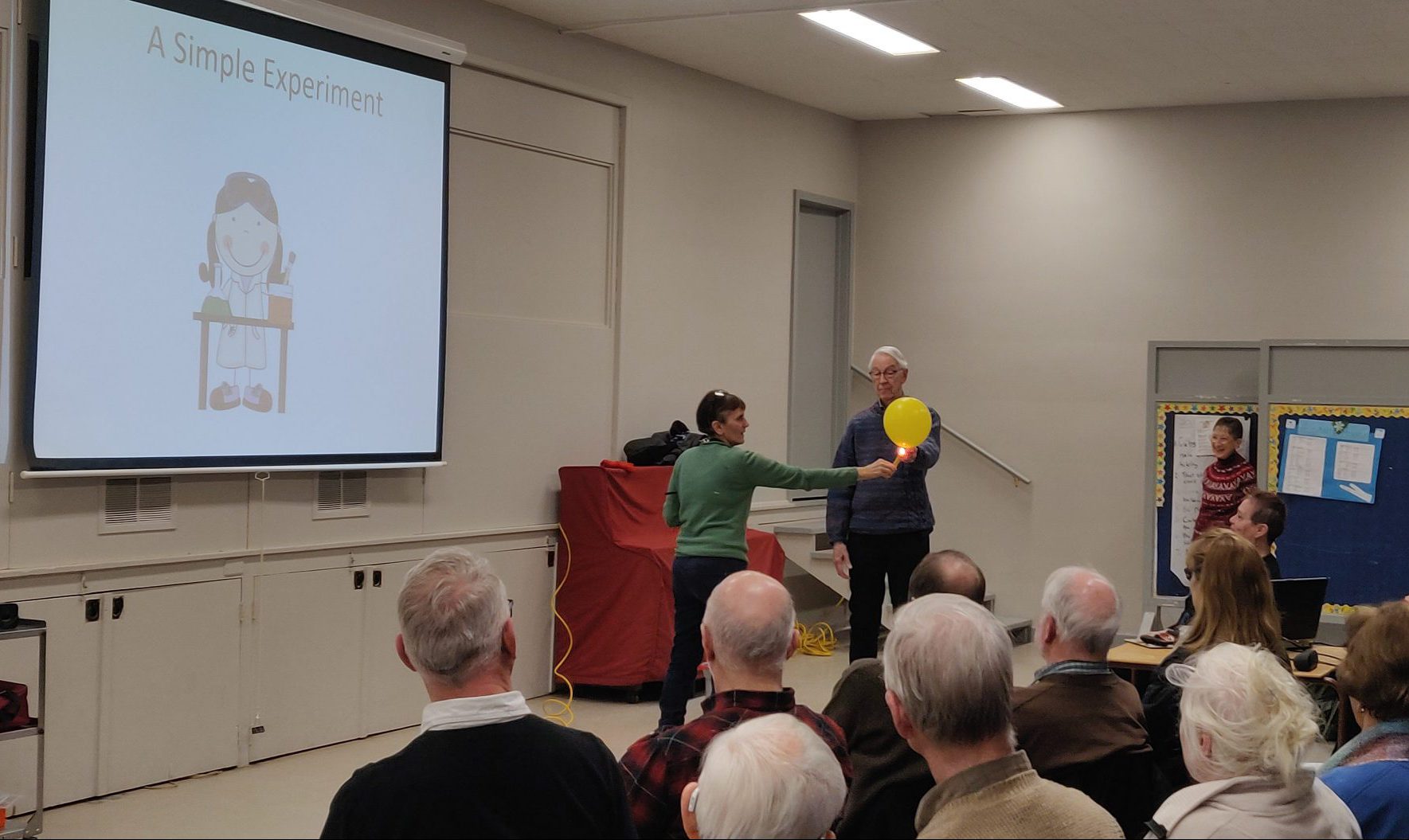One frigid Friday night in January, the hottest ticket in the community of Dundas, Ont., is for a climate change talk.
In the basement of St. Mark’s United, retired high school science teacher Tina Di Clemente pulls out a lighter and holds it against a balloon filled with air. It pops quickly, startling the crowd — about 70 people, most of them over the age of 60. But the next balloon, filled with water, doesn’t pop when she puts the lighter against it. It’s a demonstration of how water absorbs heat and why Earth’s increasing temperature spells trouble for the oceans.
Di Clemente is part of Elders For Climate Sanity — a group of seniors encouraging their peers to play a part in fighting the climate crisis.
Rose Janson, one of the six members of Elders for Climate Sanity, says that the idea came from thinking about the future of their grandchildren. “We thought that there was an awful lot of seniors who may not really know what the truth is about climate and who would also become interested in doing things if they knew more about it,” she says.
They decided the best approach was to start with education. Di Clemente put together a presentation aimed at helping people understand the science behind climate change and what they could do to support solutions.
Presentations started a year ago at Caroline Place Retirement Residence, where Don Brown, another member of Elders For Climate Sanity, lives.
Since then, the group has presented at retirement homes, churches and schools across the Greater Hamilton Area. About 30 people typically show up. Di Clemente believes they are reaching their audience. “We were at a church group last Friday and … there were a few people [that] came up to me and they said, ‘wow, I learned so much,’” she says. “We get comments like that actually quite often.”
The talk at Caroline Place Retirement Residence started a conversation among residents about improving their recycling program. Elders for Climate Sanity is also part of an effort to stop Enbridge from building a 48-inch fracked gas pipeline through environmentally sensitive parts of Hamilton — Di Clemente discusses it in her presentation, and they encourage participants to sign a petition against the project.
But the main aim is to show seniors that they are an important part of the climate crisis battle. “Someone can still talk about it,” says Janson. “They can give some money. There are things people can do, even if they’re old.”
Some feel they have to take action for the generations to come. “I have three great-grandchildren now,” says Brown. “I said to the wife of my grandson, ‘you’re going to have a third child … that even gives me more impetus to work for climate change.’ And she felt really moved by that.”
At the end of Di Clemente’s talk in Dundas, the audience, energized by the presentation, starts a lively discussion. One person wonders how we can heal political divisions that stop real action, while another suggests starting petitions to encourage positive green energy efforts. It’s a conversation that takes the event well into the evening.
Janson is inspired by Greta Thunberg’s example. “[Thunberg] has this book of essays … No One Is Too Small to Make a Difference,” Janson says. “So we were thinking of a new motto for us, which is: no one is too old to make a difference.”
















Thank you for this article. We must persist in our efforts to be heard and with examples of how we can change to promote the fact the planet gives us life. But it can only do that if we let it do that. No poisons, no plastics, no chemicals in water, land, air and US. Perhaps we want too much of the ‘easy’ ways.